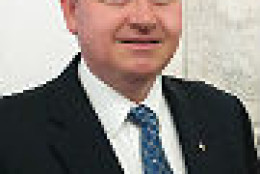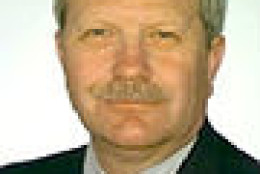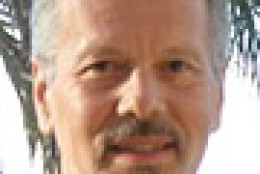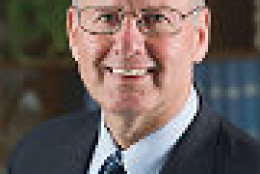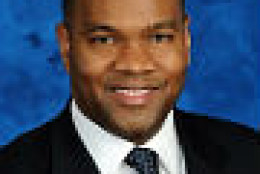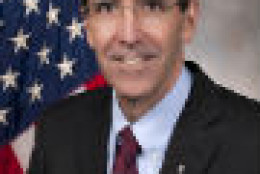On DoD
-
A new series of acquisition changes called "Bending the Cost Curve" aims to make the overall Air Force acquisition process more responsive to technological advances, and reduce the time it takes to buy major weapons systems. The Air Force Research Lab will host a technology challenge program with the largest award in military history.
January 16, 2015 -
The Littoral Combat Ship U.S.S. Fort Worth is in the Java Sea, helping with the effort to recover the remains of the Air Asia flight. The ship's work in that effort is generating a discussion about the future of the LCS program. Sydney Freedberg in Breaking Defense writes the mission "shows why the Navy needs something like LCS at all." Retired U.S. Navy Capt. Jerry Hendrix is senior fellow and director of the Defense Strategies and Assessments Program for the Center for a New American Security. On In Depth with Francis Rose, he explained if he thinks the LCS program has turned the corner and is headed toward respectability in Congress.
January 14, 2015 -
Critics of the Navy's maritime strategy -- or lack thereof -- are all over the federal defense community. One retired officer tells the U.S. Naval Institute the defense community may not understand what the word "strategy" means anymore. Congressman Randy Forbes has an open letter to chief of naval operations, Adm. Jonathan Greenert, asking him to lead an effort to restore strategic planning to the Navy. Barney Rubel is former dean of the Center for Naval Warfare Studies at the U.S. Naval War College. On In Depth with Francis Rose, he said those critics are missing an important piece of the strategy puzzle.
January 08, 2015 -
Stop us if you've heard this before. If you tell contractors bidding on a big procurement you're going to use Plan X for evaluating prices, you better use Plan X. Otherwise you could lose a protest. That's what happened to the Navy in a $2.5 billion program. Procurement attorney Joe Petrillo joined the Federal Drive with Tom Temin to explain more of what happened and the lessons learned in this week's Legal Loop.
January 08, 2015 -
Air Force CIO Lt. Gen. Bill Bender said the service is baking in role-based authentication capabilities as part of its move to the MilCloud. He said the Joint Regional Security Stacks (JRSS) will help the Air Force move out of its AFNet architecture.
January 07, 2015 -
Troops start the new year with a 1 percent pay raise. That's a little less than the 1.8 percent raise they would have gotten automatically from the annual cost of living adjustment. A study on pay and benefits from the Military Compensation and Retirement Modernization Commission is due next month. Vice Adm. Norb Ryan is president of the Military Officers Association of America. He says some kind of reform is long overdue. He shared his Top 3 for 2015 on In Depth with Francis Rose. He says morale is still a top priority for the military, even with fewer commitments in Afghanistan.
January 06, 2015 -
The Centers for Medicare and Medicaid Services awarded a five-year, $563 million contract to Accenture to continue its work on Healthcare.gov. It's a high-profile contract in health IT in the federal government, but it's only one contract. Horace Blackman is vice president of health and life sciences at Lockheed Martin. He shared his Top 3 for 2015 on In Depth with Francis Rose. Horace says health IT growth is poised to explode -- and 2015 won't be the end of it, either.
January 05, 2015 -
A new program through the Uniformed Services University of the Health Sciences' F. Edward Hébert School of Medicine will give men and women in the enlisted ranks of the military two years of undergraduate-level science coursework meant to prepare them for the rigorous Medical College Admission Test (MCATs).
January 02, 2015 -
Enlisted Navy and Marine Corps service members have a new, easier route to medical school. It's called the Enlisted-to-Medical Degree Preparatory Program. It puts them on equal footing with counterparts in the Army and Air Force. Dr. Art Kellermann is Dean of the F. Edward Hébert School of Medicine at the Uniformed Services University of the Health Sciences. He joined the Federal Drive with Tom Temin to explain how the new program works.
January 02, 2015 -
The new year will bring new contracting initiatives throughout government. A big case in point: The Army's forthcoming Responsive Strategic Sourcing for Services, or RS3. It's one of several big, multiple-award contracts that will drive consolidation of professional services. Many more service contracts are likely to flow through vehicles like RS3 and the Navy's SeaPort E. Kevin Brancato, Senior Defense Analyst at Bloomberg Government, joined Tom Temin on the Federal Drive to provide a broader outlook on RS3 and defense contracting in 2015.
January 02, 2015 -
Even without all the fireworks caused by furloughs and the government shutdown that occurred in 2013, Federal News Radio readers found plenty to intrigue them in 2014. Read our 10 most-read stories for 2014.
December 31, 2014 -
Geospatial intelligence tools have become critical to the military when it heads into unfamiliar landscapes around the globe. The Army's Situational Awareness Geospatially Enabled (SAGE) tools help intelligence analysts quickly identify terrain that could help or hinder a mission. Dhiren Khona is a principal investigator for the SAGE Team at the Army Geospatial Center. He joined the Federal Drive with Tom Temin to explain what the system is, and what advantages it offers.
December 30, 2014 -
Jeffrey Cathey and Lewis Runnion with Bank of America will discuss how the company is helping veterans find jobs in the private sector after they complete their military service. December 26, 2014
December 26, 2014 -
The Justice Department settled two different cases with large contractors, both of which allegedly overcharged the agencies under the False Claims Act.
December 22, 2014 -
Maureen Casey with JP Morgan Chase and Company, and the Rand Corporation's Dr. Margaret Harrell, join host Derrick Dortch to talk about a new report that looks at lessons learned from a program that helps veterans find jobs in private sector. December 19, 2014
December 19, 2014


